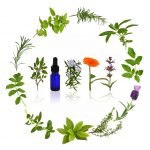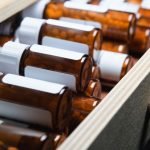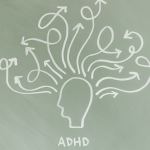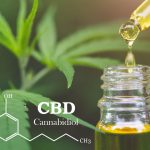Microplastic Leaching From Teabags
Node Smith, ND
Many people are trying to reduce their plastic use, but some tea manufacturers are moving in the opposite direction: replacing traditional paper teabags with plastic ones. Now, researchers reporting in ACS’ Environmental Science & Technology have discovered that a soothing cup of this brewed beverage may come with a dose of micro- and nano-sized plastics shed from the bags. Possible health effects of ingesting these particles are currently unknown, the researchers say.
Replacing traditional paper tea bags with plastic ones invites a dose of micro- and nano-sized plastics shed from the bags
Over time, plastic breaks down into tiny microplastics and even smaller nanoplastics, the latter being less than 100 nanometers (nm) in size. (For comparison, a human hair has a diameter of about 75,000 nm.) Scientists have detected the microscopic particles in the environment, aquatic organisms and the food supply, but they don’t know yet whether they are harmful to humans. Nathalie Tufenkji and colleagues wondered whether recently introduced plastic teabags could be releasing micro- and nanoplastics into the beverage during brewing. They also wanted to explore the effects of the released particles on small aquatic organisms called Daphnia magna, or water fleas, which are model organisms often used in environmental studies.
How the study was conducted
To conduct their analysis, the researchers purchased four different commercial teas packaged in plastic teabags. The researchers cut open the bags, removed the tea leaves and washed the empty bags. Then, they heated the teabags in containers of water to simulate brewing conditions. Using electron microscopy, the team found that a single plastic tea bag at brewing temperature released about 11.6 billion microplastic and 3.1 billion nanoplastic particles into the water.
More research needed to determine if the plastics could have more subtle or chronic effects on humans
These levels were thousands of times higher than those reported previously in other foods. In another experiment, the researchers treated water fleas with various doses of the micro- and nanoplastics from teabags. Although the animals survived, they did show some anatomical and behavioral abnormalities. More research is needed to determine if the plastics could have more subtle or chronic effects on humans, the researchers say.
Source:
- American Chemical Society. “Plastic teabags release microscopic particles into tea.” ScienceDaily. ScienceDaily, 25 September 2019. <www.sciencedaily.com/releases/2019/09/190925083805.htm>.
 Node Smith, ND, is a naturopathic physician in Humboldt, Saskatchewan and associate editor and continuing education director for NDNR. His mission is serving relationships that support the process of transformation, and that ultimately lead to healthier people, businesses and communities. His primary therapeutic tools include counselling, homeopathy, diet and the use of cold water combined with exercise. Node considers health to be a reflection of the relationships a person or a business has with themselves, with God and with those around them. In order to cure disease and to heal, these relationships must be specifically considered. Node has worked intimately with many groups and organizations within the naturopathic profession, and helped found the non-profit, Association for Naturopathic Revitalization (ANR), which works to promote and facilitate experiential education in vitalism.
Node Smith, ND, is a naturopathic physician in Humboldt, Saskatchewan and associate editor and continuing education director for NDNR. His mission is serving relationships that support the process of transformation, and that ultimately lead to healthier people, businesses and communities. His primary therapeutic tools include counselling, homeopathy, diet and the use of cold water combined with exercise. Node considers health to be a reflection of the relationships a person or a business has with themselves, with God and with those around them. In order to cure disease and to heal, these relationships must be specifically considered. Node has worked intimately with many groups and organizations within the naturopathic profession, and helped found the non-profit, Association for Naturopathic Revitalization (ANR), which works to promote and facilitate experiential education in vitalism.










